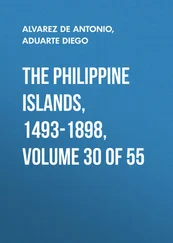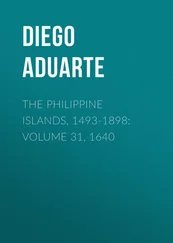John Bowring - A Visit to the Philippine Islands
Здесь есть возможность читать онлайн «John Bowring - A Visit to the Philippine Islands» — ознакомительный отрывок электронной книги совершенно бесплатно, а после прочтения отрывка купить полную версию. В некоторых случаях можно слушать аудио, скачать через торрент в формате fb2 и присутствует краткое содержание. Жанр: foreign_antique, foreign_prose, на английском языке. Описание произведения, (предисловие) а так же отзывы посетителей доступны на портале библиотеки ЛибКат.
- Название:A Visit to the Philippine Islands
- Автор:
- Жанр:
- Год:неизвестен
- ISBN:нет данных
- Рейтинг книги:3 / 5. Голосов: 1
-
Избранное:Добавить в избранное
- Отзывы:
-
Ваша оценка:
- 60
- 1
- 2
- 3
- 4
- 5
A Visit to the Philippine Islands: краткое содержание, описание и аннотация
Предлагаем к чтению аннотацию, описание, краткое содержание или предисловие (зависит от того, что написал сам автор книги «A Visit to the Philippine Islands»). Если вы не нашли необходимую информацию о книге — напишите в комментариях, мы постараемся отыскать её.
A Visit to the Philippine Islands — читать онлайн ознакомительный отрывок
Ниже представлен текст книги, разбитый по страницам. Система сохранения места последней прочитанной страницы, позволяет с удобством читать онлайн бесплатно книгу «A Visit to the Philippine Islands», без необходимости каждый раз заново искать на чём Вы остановились. Поставьте закладку, и сможете в любой момент перейти на страницу, на которой закончили чтение.
Интервал:
Закладка:
There are thirteen electors for each pueblo – the gobernadorcillo and twelve inhabitants – half of whom must have been gobernadorcillos or cabezas, and the other half be in the actual exercise of those functions; they must also have some well-recognized means of existence: domestic servants to the authorities are excluded; as also those who have been punished as criminals.
It is further required that the gobernadorcillo be a native Indian or mestizo, an inhabitant of the locality where he serves, and above twenty-five years old; having passed the subordinate offices of lieutenant or cabeza, having his accounts in order, holding no land from the community, and no monopoly ( estanco ) from the government. Similar recommendations are insisted on for the first lieutenant and the principal (native) magistrates appointed for the settlement of questions regarding seed-sowing, police, and cattle. These magistrates must have enjoyed the rank of gobernadorcillo. As regards the minor officers of justice and their attendants, a list is to be made out by the gobernadorcillo before quitting office, which is to be presented to the authority presiding over the elections, and having heard the clergyman ( cura ) and the committee of election, the president approves the list for transmission to the supreme authority; but if he finds discordance and irreconcilable opinions between the parties before him, he is authorized himself to recommend the officers for nomination.
All the proceedings are the subjects of record, and to be signed by the president, the curate (if present), the electors, and the public notary, and to be remitted to the supreme authority, except in the provinces adjacent to the capital. The president may attach to the record any observations of his own connected with the returns. A decree of 1850 required the general adoption of the system which has been described, and which appears to me well worthy of note, showing how many valuable elements of good government are to be found in the popular institutions of the Philippine Indians.
The Chinese of the capital may elect Christian converts of their own body, under the presidency of the alcalde mayor of Manila, to the offices of gobernadorcillo, first lieutenant, and principal alguacil (bailiff). The dependent subordinate officers of justice are called bilangos , and are appointed by the gobernadorcillo on his election. The recovery of the tribute or taxes from the Chinese is not left to their principalia, but is effected by the alcalde mayor or superior chief. An officer is appointed to classify the Chinese, and apportion the quota of their contributions according to the wealth of the payer, who is charged for what is called a patente industrial .
The gobernadorcillos and officers of justice are entitled to sit in the presence of the provincial chiefs, who are to require the parochial clergy to treat them with due honour and regard.
M. Mallat, whose Geographical History of the Philippines was published in 1846, remarks that, of all colonies founded by Europeans, these regions are perhaps the least known, and the most worthy of being known. The number of islands which compose the archipelago, – their vast extent and boundless variety, – the teeming population of many of them, – the character of the climate, – the wonderful fertility of the soil, – the inexhaustible riches of hill, valley, and plain, – all offer to cultivation and its civilizing influences abundant rewards. But as regards the “industrious habits” of the natives, I cannot place that consideration, as M. Mallat does, among the elements of hope. It is the want of these “industrious habits,” among four or five millions of inhabitants, which has left the Philippines in a position so little advanced.
Java under the government of the Dutch, and Cuba subjected to the Spanish rule, present, no doubt, far more favourable pictures than do the Philippines; but many of the difficulties which surround the captain-general of Manila, – difficulties both religious and social, – do not embarrass the governor of Batavia; the island of Java, the most productive of Netherlands India, being peculiarly free from these difficulties; and it cannot be said that Sumatra and Borneo are even on a level with the more advanced of the Philippine Islands.
To the character of the original conquest and of the earlier government of the Philippines may be traced many of the impediments which now stand in the way of improvement. In America and the West Indies all the brutality of military conquerors was exhibited, and the possession and plunder of new territories were encouraged by the Spanish court, and were the main object of the Spanish invader. But far different was the policy adopted in the Philippines, where only a small body of soldiers was accompanied by zealous missionaries, whose purpose was rather to convert and christianize the Indians than to pillage and destroy them. These friars gradually obtained a paramount influence over the Indians. The interests of trade have ever been the predominant consideration among Dutch colonizers, and among British adventurers the commercial element has always been intimately associated with the desire for territorial occupation. To the Spaniards it must be conceded that the religious purpose – be its value what it may – has never been abandoned or forgotten. Ecclesiastical jurisdiction and authority are interwoven in the Philippines with the machinery of government and the daily concerns of life.
And such ecclesiastical action has been comparatively little interfered with in the Philippines. The development which mental emancipation has given to many Protestant countries and their dependencies has reached few Catholic colonies; nor is that emancipation, indeed, consistent with the more rigid discipline and doctrines of Rome. But in the case of the most prosperous instances of colonization by the British, the native races have either wholly disappeared or are in progress of extinction, while the infusion of Spanish and foreign blood into the colonies of Spain has not only allowed the increase of the indigenous population, but has been insufficient to change or do more than slightly modify their national characters. It has undoubtedly been the boast of the Catholics that Francis de Xavier and his followers won more for the Roman Church in the East than Luther or Calvin ever tore away from it in the West; but the value of the conquests, contrasted with that of the losses and sacrifices, if fairly estimated, would hardly be deemed unsatisfactory to the Protestant cause.
No doubt the great remoteness of the Philippines from Europe, the difficulties and infrequency of communication, gave to the local authorities more of independent action than would otherwise have been allowed to them; and in case of the death of the governor, the archbishop was generally the functionary who filled his place; his adjacency to the government, and frequent direction of it, naturally led to the strengthening of his own authority and that of all ecclesiastics dependent upon him.
In the earlier periods of Eastern colonization, too, the Portuguese, jealous of all European intercourse but their own with nations east of the Cape, did all in their power to prevent any other than the Lusitanian flag from being seen in Oriental waters. But as regards missionary objects their views were to some extent concurrent with those of the Spanish priests, and their proceedings were in harmony with those of the Spaniards, especially in so far as both received their direction from the Pontiff at Rome. It ought not, however, to be forgotten that whatever may have been the progress of Christianity in the Philippines, the persecutions, disasters, discomfiture, and death of so many professing Christians in Japan, are probably attributable to the ill-guided zeal of the Portuguese preachers of the Gospel in these still remoter regions. It is well for the interests of truth, as most assuredly it is for the interests of commerce and civilization, that a more temperate and tolerant spirit has for the last century been associated with the progress of European influence in the East.
Читать дальшеИнтервал:
Закладка:
Похожие книги на «A Visit to the Philippine Islands»
Представляем Вашему вниманию похожие книги на «A Visit to the Philippine Islands» списком для выбора. Мы отобрали схожую по названию и смыслу литературу в надежде предоставить читателям больше вариантов отыскать новые, интересные, ещё непрочитанные произведения.
Обсуждение, отзывы о книге «A Visit to the Philippine Islands» и просто собственные мнения читателей. Оставьте ваши комментарии, напишите, что Вы думаете о произведении, его смысле или главных героях. Укажите что конкретно понравилось, а что нет, и почему Вы так считаете.












